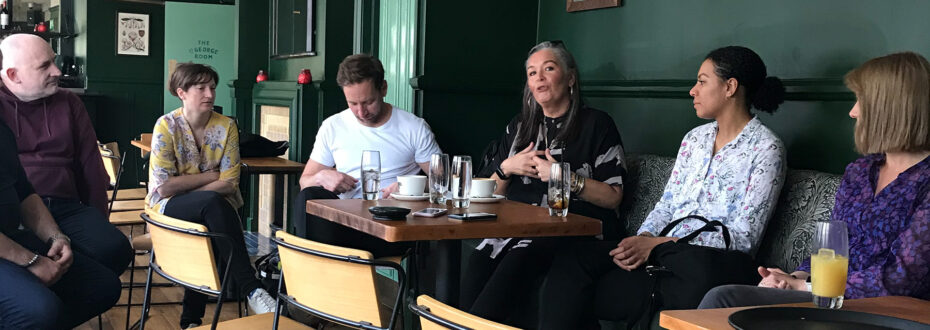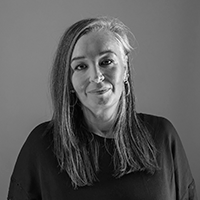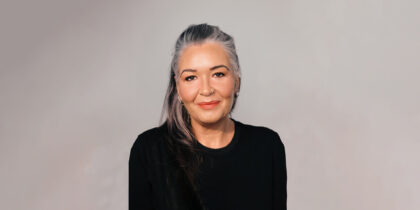By Sarah Hughes
Working at the Centre has been an extraordinary experience, one that I am going to remember with gratitude and a fondness I won’t be able to convey in this short blog. Put simply, as I travel through the rest of my career, I know I am better for this apprenticeship with the best in the sector.
When I stepped into this role I already had 25 years of experience working in mental health service delivery. I had circled the world of policy and research but never inhabited it, and I had all sorts of assumptions – most of which were never realised.
I thought the world of policy was full of people who had no idea, who looked on with academic rigour but without hearts and minds. I thought that an organisation that wasn’t in the real business of delivery was somehow ‘less than’. But once my curiosity and deep admiration for the Centre helped me secure the job, then everything changed. I changed.
The first thing to discover is that there is more heart and depth of compassion in policy and research than I could have imagined. There exists an unseen army of folk kicking down doors and using their brains and wit to dismantle injustice and inequity. People are pacing the halls of Westminster, as well as working closely with communities and people with lived experience, to cultivate solutions to some of the biggest social challenges.
I had no idea what it took to get mental health on the political agenda. I hadn’t seen the persistent and relentless calls on politicians, the quiet revolution plugging the gaps in research. I realise now I was oblivious to this social movement; I didn’t get the nuances. (To be fair, when you’re delivering services, nothing is more important than what you’re doing there and then – the wider context goes down the list of priorities.)
At the Centre I could appreciate that we are all on the same team, we are fighting for the same thing. Services are helping people every day during the most difficult times; policy people are making sure decision makers hear about it. Having seen it now in real time, I can see how research and data contributes to the golden triangle of influence, alongside lived experience and practice. Without these things working in concert, change doesn’t happen.
When I arrived at the Centre we had had a shaky few years: shifting financial sands meant we had to develop new ways to draw in income. I knew it was a make or break situation, but I also quickly saw how important the Centre was to the mental health community. Whatever challenges we faced, our work was still at the heart of big decisions being made by government and other stakeholders, and people were coming to us in droves for help. It was clear that the Centre’s role was to retain the independent thinking that people so deeply valued. We solved our own financial challenges and are a thriving organisation today. People often think there are lots of us; in fact, we’re fewer than 30.
The Centre is renowned for being a friend to the sector. Our culture is fiercely propelled by a set of values: we believe that good relationships are key, and that our role is about adding value, not causing harm by sharing unfair criticism nor failing to talk in hard truths. This demands walking a wobbly tightrope sometimes. It can mean that we lose friends and gain them back; we don’t shy away from telling it like it is, but we work hard to rely on evidence and learn from mistakes.
One of the most challenging things we at the Centre have to do is manage people’s expectations. We can struggle to help our partners fully appreciate what can and can’t be done in research and policy terms, or that the budget they have set aside for this type of work isn’t enough, or halfway through they decide they want something else or something more, or we aren’t credited for our work. One of my parting gifts to the Centre is a public plea to our friends to remember that we are small – yes, and mighty – but funding and equitable contracting is important for our survival, and is right for the work being delivered. Being credited allows us to expand our reach. And finally, we are never going to tell you what you want to hear – always what we find.
I have been schooled in big things by the Centre team, mostly the classic how to win friends and influence people. I’ve got skills now in building networks and framing policy and strategy, I’ve got an ability to decipher research into real terms. I am a Centre person. I have a wisdom I owe to Andy, clarity from Jan and a whole load of knowledge from the Centre’s ‘Genius Bar’ and back catalogue. I am going to miss our team – we had a few days together recently and it was joyous. Our unwavering commitment to equity and justice is paramount; it underpins every bit of work and conversation. The kindness and compassion shared between us makes the work we do possible and impactful. Every person who works at the Centre brings a unique perspective and that offers the world of mental health such a rich source of insights and inspiration.
I want to thank our team, everyone past and present, our trustees, and the two women who have been my Chairs and mentors: the late Lady Elizabeth Vallance and Professor Dame Sue Bailey. I have absorbed their wisdom and have valued their solidarity and guidance so much.
By the time I leave to join Mind as CEO I will have been at the Centre for six years, two of them during a global pandemic. It has gone by in a flash, but I think we’ve done well together – disrupted some things, deepened our commitment to equality in mental health, raised our profile in this digital age, made new friends and proved our worth.
There have been lots of times over the last year when I realised I could leave the Centre knowing it would thrive, but two moments stand out. The first was at a directors meeting when I realised that all the good ideas were radiating from the team rather than me. The second time was when Andy (the nicest man in policy, by the way) dropped a swear bomb about a failure in some policy or other, and I thought, “ha – my work here is done…”





